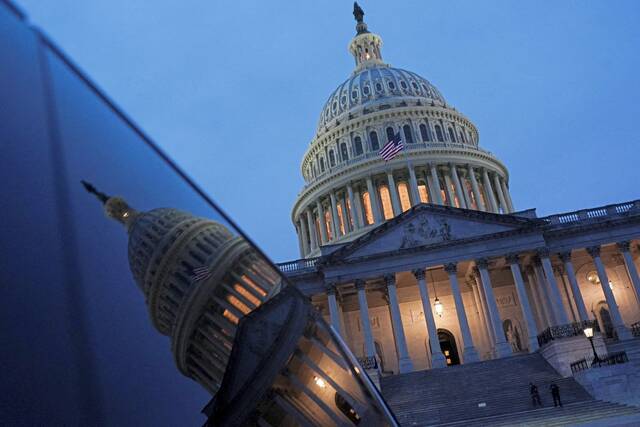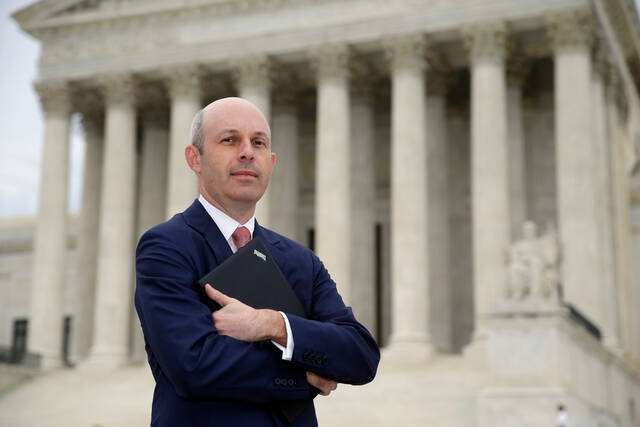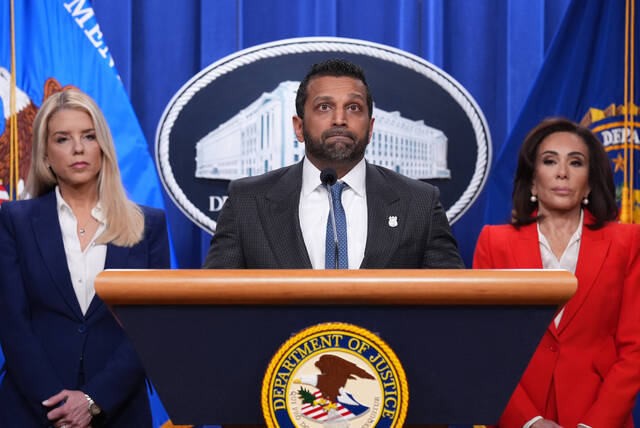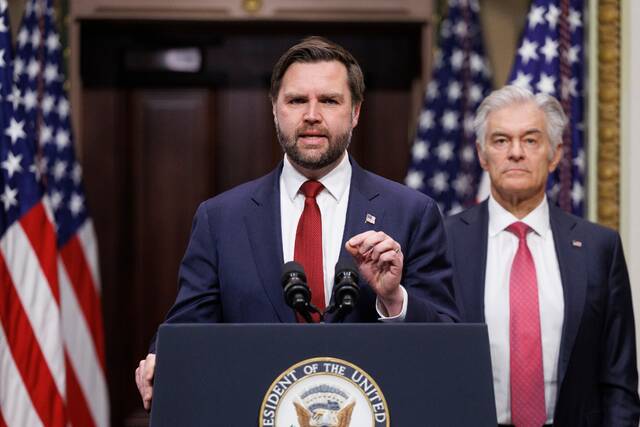With Congress and the White House remaining deadlocked over the 2026 federal budget, the U.S. government shut down much of its operations as of midnight Wednesday.
The partial shutdown could be a long standoff, Reuters reported, which could lead to the loss of thousands of federal jobs.
Agencies are warning that the shutdown could halt the release of a closely watched September employment report, slow air travel, suspend scientific research, withhold pay from U.S. troops and lead to the furlough of 750,000 federal workers at a daily cost of $400 million.
Democrats want to extend Affordable Care Act subsidies that are set to expire at the end of the year, while Republicans aim to block undocumented immigrants from receiving federal health benefits and require 80 hours of work or volunteer service per month to qualify, USA Today reported.
The last shutdown was during Trump’s first term — from Dec. 22, 2018, until Jan. 25, 2019, — when he insisted he wouldn’t sign a spending bill that didn’t include $5 billion for the border wall, TribLive previously reported.
All federal agencies and services that officials do not deem “essential” must stop working during a government shutdown.
The “essential” federal workers must continue working without immediate pay but should receive back pay once the shutdown ends.
What federal services and programs are actually affected? Here’s what you need to know:
Social Security payments
Because Social Security services are deemed an “essential” service, all benefits will continue uninterrupted during the shutdown.
These benefits can include Supplemental Security Income (SSI) and benefits for retirement, disability and survivors.
Social Security, Medicare and Medicaid are mandatory spending programs, meaning their budgets are not dependent on yearly congressional approval.
Mail delivery
The Postal Service also is considered an essential service.
Therefore, postal services such as mail delivery will continue despite the partial shutdown.
In a statement, the Postal Service confirmed its operations will not be interrupted in a shutdown, and post offices will remain open for “business as usual.”
“Because we are an independent entity that is generally funded through the sale of our products and services, and not by tax dollars, our services will not be impacted by a government shutdown,” the statement said.
Air travel
Air traffic control at airports and border security are considered essential services, according to USA Today.
Flights will continue because Transportation Security Administration workers who screen at airport security checkpoints, those who give flight clearance and verify travelers’ identities at border control are still required to work.
The trade group Airlines for America, which represents United Airlines, Delta Air Lines, American Airlines, Southwest Airlines and others, warned that “the system may need to slow down, reducing efficiency.”
And the U.S. Travel Association estimates the partial shutdown could cost the nation’s travel economy $1 billion in losses each week.
During the last shutdown, the number of absences by air traffic controllers and TSA officers rose as workers missed paychecks, extending waits at some airports.
Amtrak trains and cruises will continue operating normally.
Student loans
A government shutdown won’t stop people from being able to make payments on their student loans.
The U.S. Department of Education will continue to disburse Pell Grants and Federal Direct Student loans, according to the department’s contingency plan.
As available, permanent and multi-year appropriations will also be used to continue processing Free Applications for Federal Student Aid, or FAFSA, the plan said.
Betsy Mayotte, the president and founder of The Institute of Student Loan Advisors, told USA Today borrowers should still be able to reach their loan servicers and vendors to ask questions during a short shutdown.
“The only time it becomes questionable is if the shutdown were to last a very long time — weeks or months,” Mayotte said.
Private student loan lenders and servicers will not be affected.
A shutdown could prevent the department from making progress on any new grant-making activities.
The contingency plan says most of the department’s grant programs “typically make awards over the summer and, therefore, there would be limited impact.”
National parks
“Park roads, lookouts, trails and open-air memorials will generally remain accessible to visitors,” according to a newly published contingency plan on the U.S. Department of the Interior’s website.
The plan also states that any parks with accessible areas that collect fees under the Federal Lands Recreation Enhancement Act “should use available balances from those fees to cover basic visitor services such as restroom maintenance, trash collection and campground operation,” according to USA Today.
National parks without accessible areas generally will not operate, and no visitor services will be provided. There will be exceptions for essential services such as law enforcement and border safety.
Military operations
Despite the partial government shutdown, military operations will continue.
Members of the U.S. Armed Forces will have to report to work without pay. In past government shutdowns, Congress has passed legislation to ensure they get paid.
Military operations are necessary to national security, so service members will continue to work during the shutdown — which includes more than 2 million military workers, according to the Department of Defense.
“Military personnel on active duty, including reserve component personnel on federal active duty, will continue to report for duty and carry out assigned duties,” the plan says.
However, civilian employees who aren’t needed for essential activities will be furloughed, USA Today reported.








